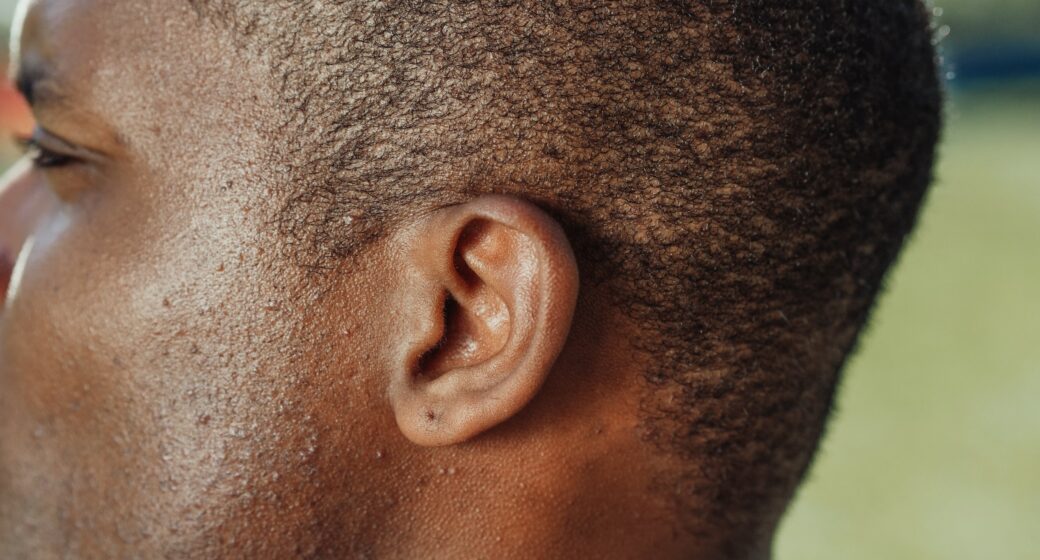
Xbox launches ASL channel on Twitch
July 1, 2022
Deaflympics Gold medalist Ashley Derrington
July 8, 2022Updated hearing loss terminology you should know

With the evolution of disability rights and more deaf awareness comes a lot of new and changing terminology. It’s time to take a look at modern hearing loss terminology and how the terms are used.
Hearing Loss Terminology
Hearing loss terminology can be confusing. So many terms and phrases describe the same thing. This can be especially difficult if someone is not severely “Deaf.” Here are some of the more popular terms, what they mean, and whether or not they’re offensive.
Hard of Hearing
In the U.S., the generally accepted phrase for someone who is mild to moderately deaf is “hard of hearing.” In the UK, the phrase is perceived as outdated. People in the UK tend to use the phrase when referring to a friend or relative. However, this means that the term “hard of hearing” is usually used to reference age-related hearing loss in seniors. It doesn’t apply so well to younger people with hearing loss.
(As someone with moderate hearing loss and bilateral hearing aids, I find the term old-fashioned, dated, and a bit embarrassing. However, I believe it is still a correct term to describe someone with a hearing loss, and there are other words that are more offensive. So in certain situations, I will use hard of hearing to describe my own hearing loss to avoid offending others.)
Hearing Impaired
Using the phrase “hearing impaired” or “hearing impairment” is problematic, as it can be perceived as ableist. It implies that someone with hearing loss is impaired or less able, rather than differently-abled. Using the term “hearing impaired” is highly likely to offend members of the Deaf community and possibly other deaf people, too. However, you’ll probably see “hearing impaired” on medical pamphlets, benefits forms, and other official paperwork that have yet to be updated. It stems from the parent term for vision or hearing difficulties – “sensory impairments.” However, this kind of language is impolite and unwelcome to those who don’t wish to consider their differences as disabilities.
“Using the phrase “hearing impaired” or “hearing impairment” is problematic, as it can be perceived as ableist.”
(Personally, I would prefer to use “hearing impaired,” partly because I grew up seeing it written that way in places that seemed important. It also seems better (to me) than using hard of hearing, which makes me feel like an old lady.)
Person with Hearing Loss
Another phrase you’ll see is “person with hearing loss” or “someone with a hearing loss.” “Hearing loss” is a medical term for permanent damage to hearing. Some people won’t refer to their own (or someone else’s) deafness like this. Its usage is widespread across medical, government, and hearing loss charities.
(I hate this one too. But I only have to put up with it on brochures from hearing loss charities, so it’s mostly fine. Typically, I don’t describe my own hearing loss like this.)
Partially deaf
Since someone with mild to severe hearing loss will still have some hearing, they may also use the term “partially deaf.” Not many people use this unless they have deafness (or hearing loss) in just one ear. Single-sided deafness is often referred to as partial deafness. But it is technically true of anyone with mild to severe hearing loss. I don’t use this one myself. It feels like it’s intended for someone with a different type of hearing issue.
Read more: Am I not deaf enough? Finding my hearing loss identity
Can I Say “deaf?”
As someone who usually falls under the hard-of-hearing banner, I find it difficult to say, “I’m deaf.” I worry that it might be offensive or incorrect. For me, it’s preferable to almost anything else. I must look a bit strange as a 31-year-old woman saying, “I’m hard of hearing.” I find it easier and less embarrassing to describe myself as “deaf.” Being deaf can mean many things, from mild hearing loss to profound deafness. I guess I could also use the term “moderately deaf,” as that’s my diagnosis. But that just sounds clunky and odd. I know I’m going to end up dropping the “moderately” immediately. No one would understand what that meant anyway.
All in all, I think I’m better off saying “I’m deaf” around people who don’t understand deafness and hearing loss. I will be more specific around those who do. As long as you don’t claim to be deaf when your hearing is fine or Deaf when you aren’t, using “deaf” is acceptable. However, you can always check with deaf or hard of hearing friends if you’re unsure and wish to avoid being rude. All in all, if you’re speaking or writing about someone else, it’s best to ask them how they prefer to be described.
Read more: Celebrating the Diversity of Deafness



